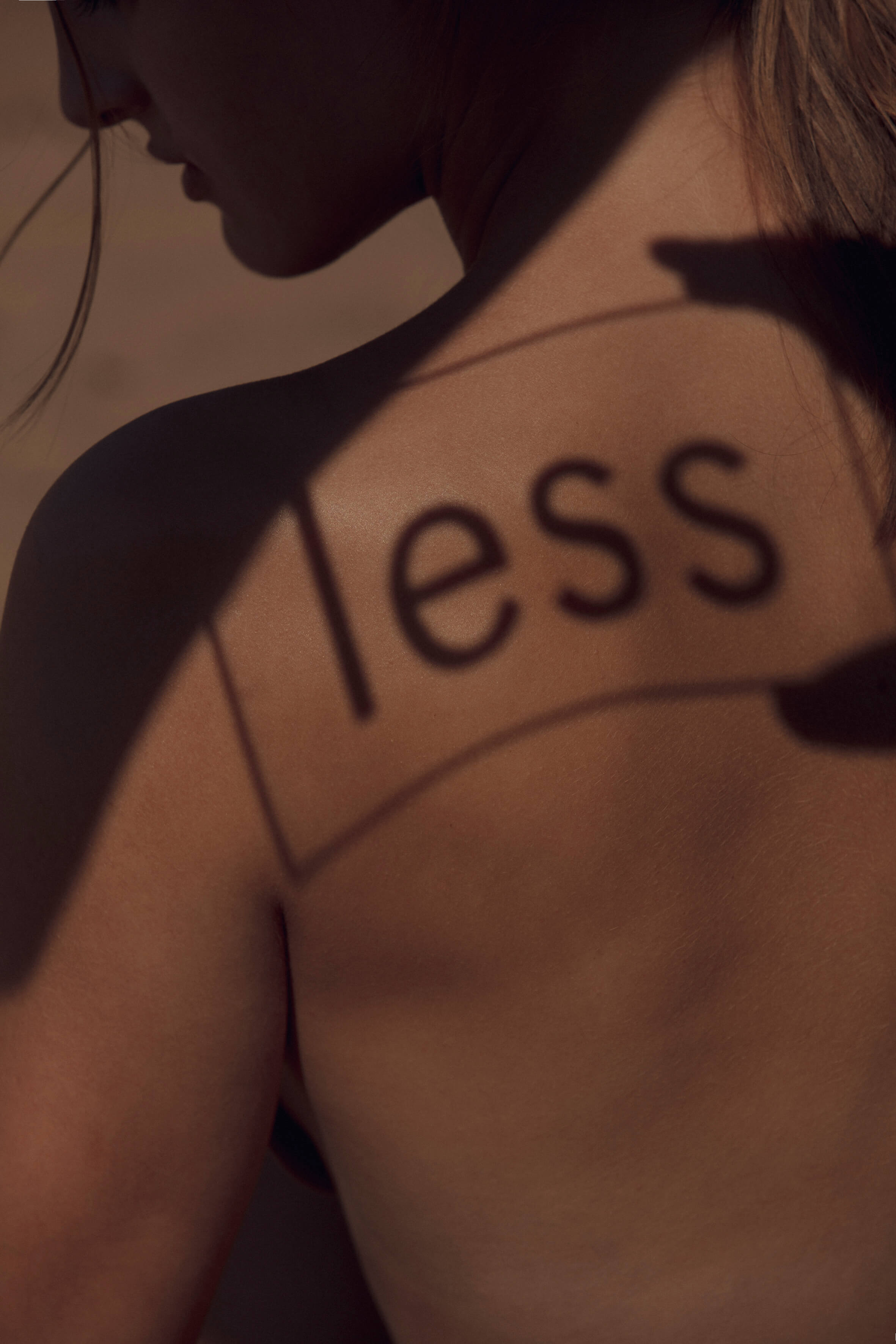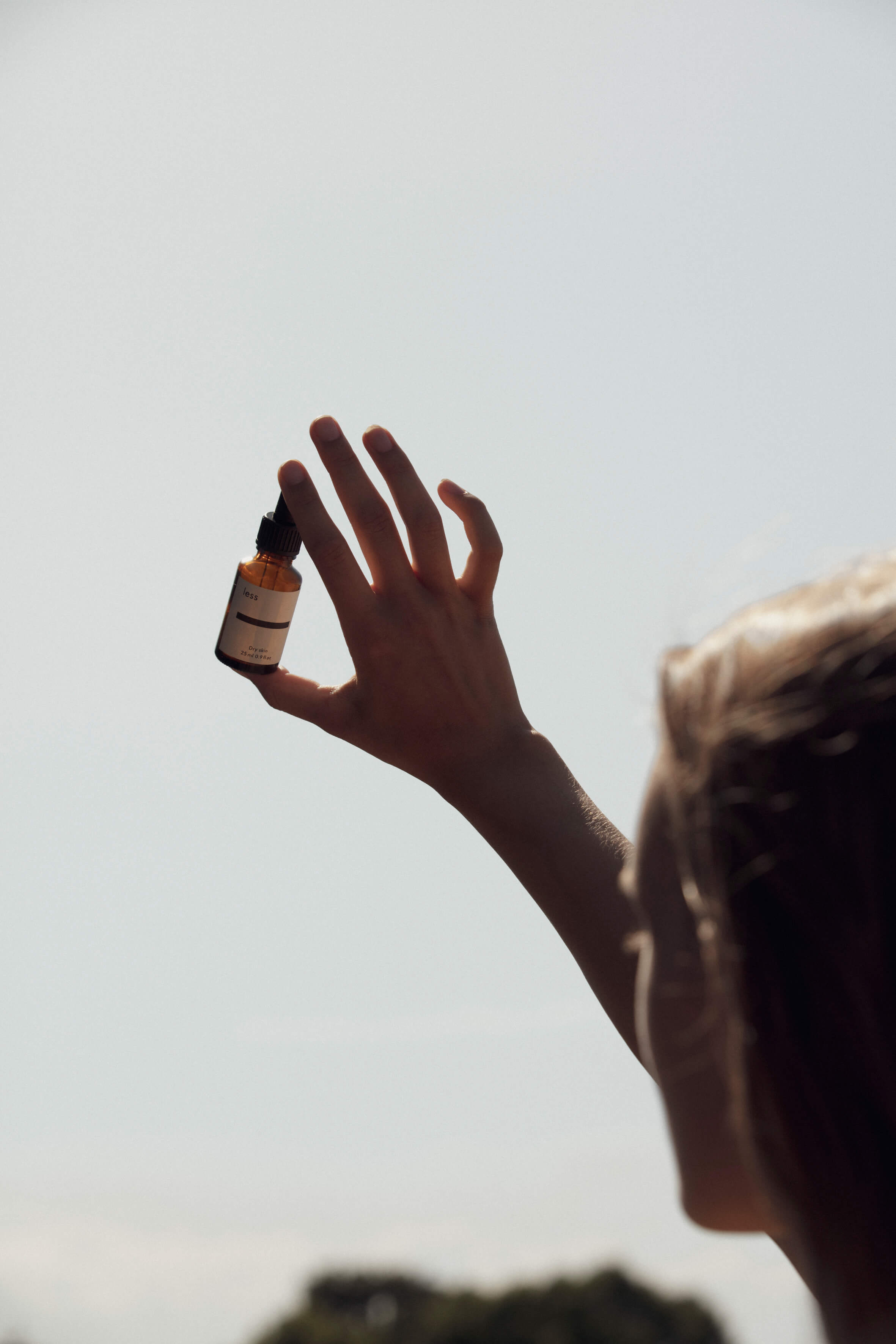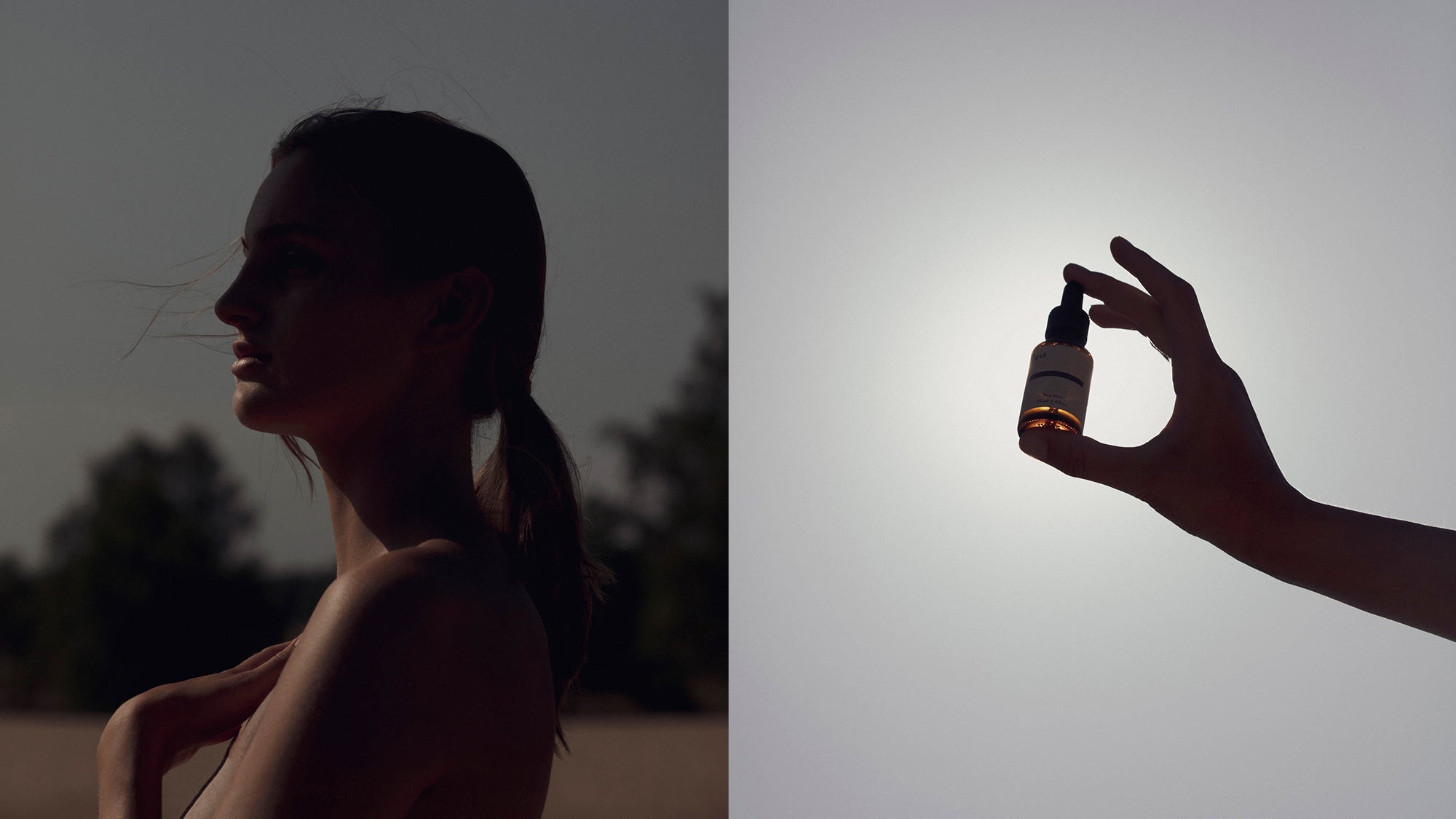
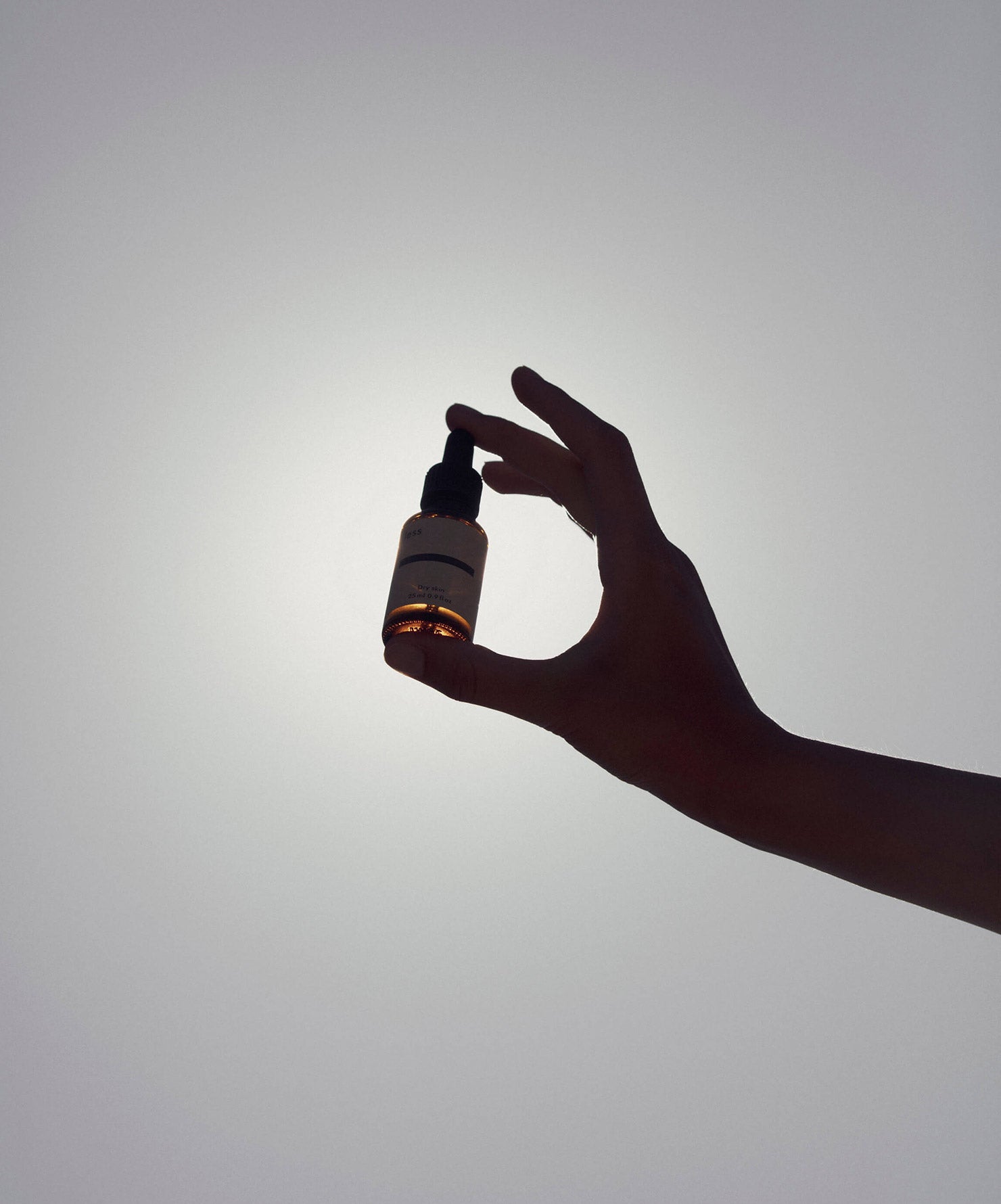
We are often asked about sun protection. Why is it that we at Less – unlike almost all other manufacturers – do not offer products with integrated sun protection factor (SPF)? What kind of sun protection do we recommend? Here are our thoughts.

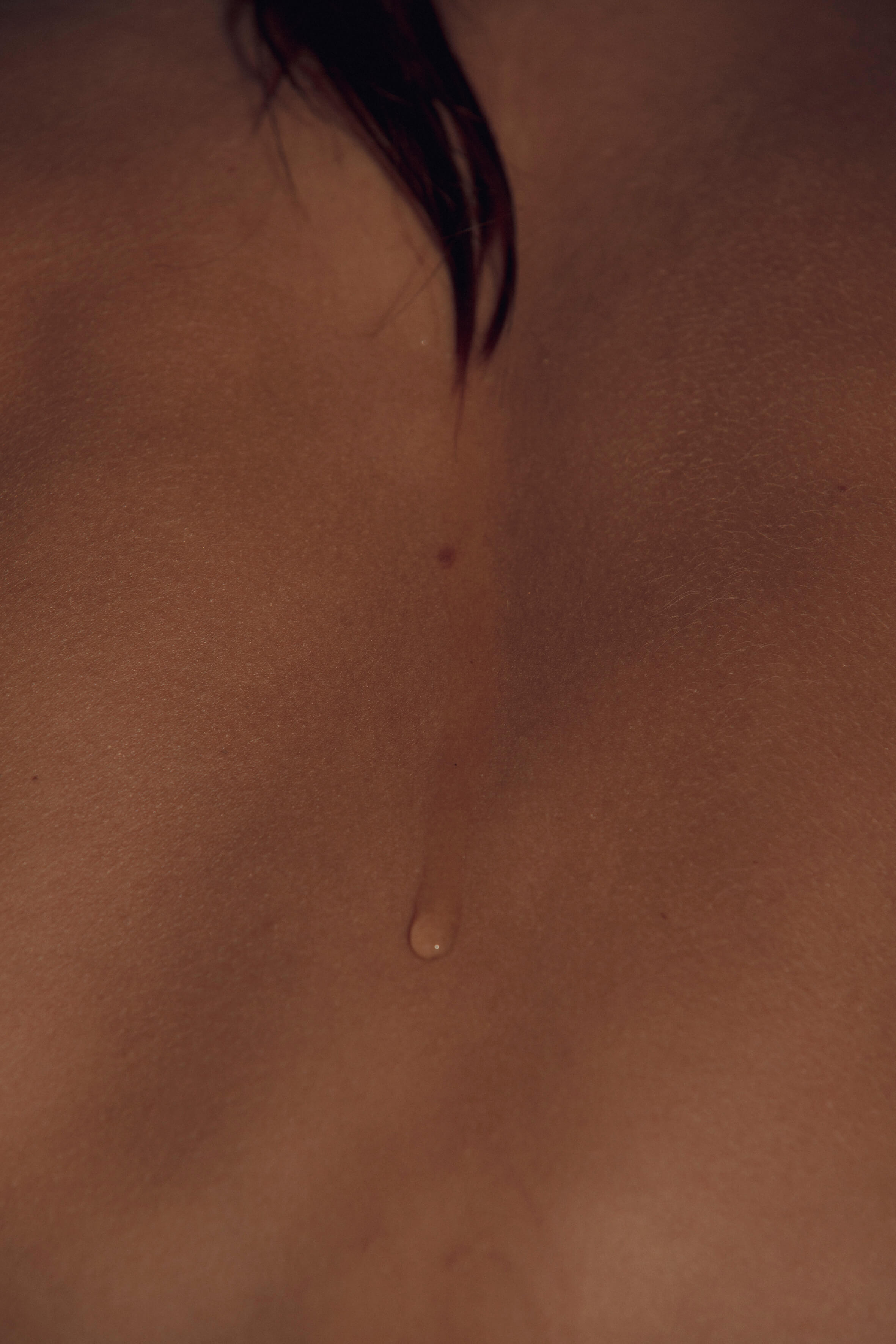
The Sun Protection Factor
If the skin is exposed to intensive sunlight for too long, sunburn occurs. The sun protection factor (SPF) indicates the factor by which a sunscreen product can extend the skin's own protection. The self-protection of the skin for people in Europe, for example, is about 10 to 15 minutes. A product with a SPF of 25 therefore theoretically increases the level of self-protection by twenty-five times.
However, the actual value is significantly lower, as the SPF written on the product is a laboratory result for which unrealistically large quantities of the sunscreen product were used. Dermatologists assume that in reality only 25 percent of the advertised SPF value is actually reached – and this only with permanent re-application. A SPF 25 may therefore in practical use be closer to a SPF of 6.
If the skin is exposed to intensive sunlight for too long, sunburn occurs. The sun protection factor (SPF) indicates the factor by which a sunscreen product can extend the skin's own protection. The self-protection of the skin for people in Europe, for example, is about 10 to 15 minutes. A product with a SPF of 25 therefore theoretically increases the level of self-protection by twenty-five times.
However, the actual value is significantly lower, as the SPF written on the product is a laboratory result for which unrealistically large quantities of the sunscreen product were used. Dermatologists assume that in reality only 25 percent of the advertised SPF value is actually reached – and this only with permanent re-application. A SPF 25 may therefore in practical use be closer to a SPF of 6.

The SPF does not protect against skin aging
Sunburn is caused by the UV-B rays of the sun. However, it is the sun's UV-A rays (which penetrate deeper into the skin) that are responsible for skin aging. What many don't know: The SPF refers only to the protective effect against UV-B rays. For those who want to protect themselves against premature skin aging, the SPF is not the right indicator. A possible protection against UV-A rays is (in Europe) only confirmed by a separate symbol, a circle with the letter combination "UVA". The UV-A value is then about one third of the LFS value, so for a SPF of 25 (laboratory value) the UV-A protection would be 8.
Sunburn is caused by the UV-B rays of the sun. However, it is the sun's UV-A rays (which penetrate deeper into the skin) that are responsible for skin aging. What many don't know: The SPF refers only to the protective effect against UV-B rays. For those who want to protect themselves against premature skin aging, the SPF is not the right indicator. A possible protection against UV-A rays is (in Europe) only confirmed by a separate symbol, a circle with the letter combination "UVA". The UV-A value is then about one third of the LFS value, so for a SPF of 25 (laboratory value) the UV-A protection would be 8.


Why skincare products with SPF can cause more harm than good
As seen, the SPF is not a reliable indicator for skin care. And there are other reasons why skincare products with integrated UV protection are not advisable and can lead to skin problems.
Not necessary in everyday life.
Sunlight is good for the skin. It has a depression-relieving effect and helps the skin to repair itself. Only excessive sun exposure, e.g. when sunbathing, should be strictly avoided. For most people this means that they do not need permanent UV protection in their daily routine. UV-B rays, for example, do not even penetrate window glass. Dermatologists repeatedly point out that skincare products should be free of UV protection in order not to unnecessarily stress the skin.
Filters cause irritations.
Face creams with UV protection contain controversial ingredients: the sun protection filters. Dermatologists usually recommend mineral filters, such as zinc oxide or titanium oxide. However, these produce a white film on the skin, which is undesirable in skincare products. In order to make the sun protection invisible, chemical filters are often used as they do not reflect the sun’s rays but “invisibly” convert them into heat. But these filters can penetrate the skin and cause allergic reactions, pigmentation disorders and the formation of free radicals. Some chemical filters are also suspected of stimulating cancer. In face creams with SPF, the filters act on the skin all day long, even if most of the time is spent indoors.
As seen, the SPF is not a reliable indicator for skin care. And there are other reasons why skincare products with integrated UV protection are not advisable and can lead to skin problems.
Not necessary in everyday life.
Sunlight is good for the skin. It has a depression-relieving effect and helps the skin to repair itself. Only excessive sun exposure, e.g. when sunbathing, should be strictly avoided. For most people this means that they do not need permanent UV protection in their daily routine. UV-B rays, for example, do not even penetrate window glass. Dermatologists repeatedly point out that skincare products should be free of UV protection in order not to unnecessarily stress the skin.
Filters cause irritations.
Face creams with UV protection contain controversial ingredients: the sun protection filters. Dermatologists usually recommend mineral filters, such as zinc oxide or titanium oxide. However, these produce a white film on the skin, which is undesirable in skincare products. In order to make the sun protection invisible, chemical filters are often used as they do not reflect the sun’s rays but “invisibly” convert them into heat. But these filters can penetrate the skin and cause allergic reactions, pigmentation disorders and the formation of free radicals. Some chemical filters are also suspected of stimulating cancer. In face creams with SPF, the filters act on the skin all day long, even if most of the time is spent indoors.
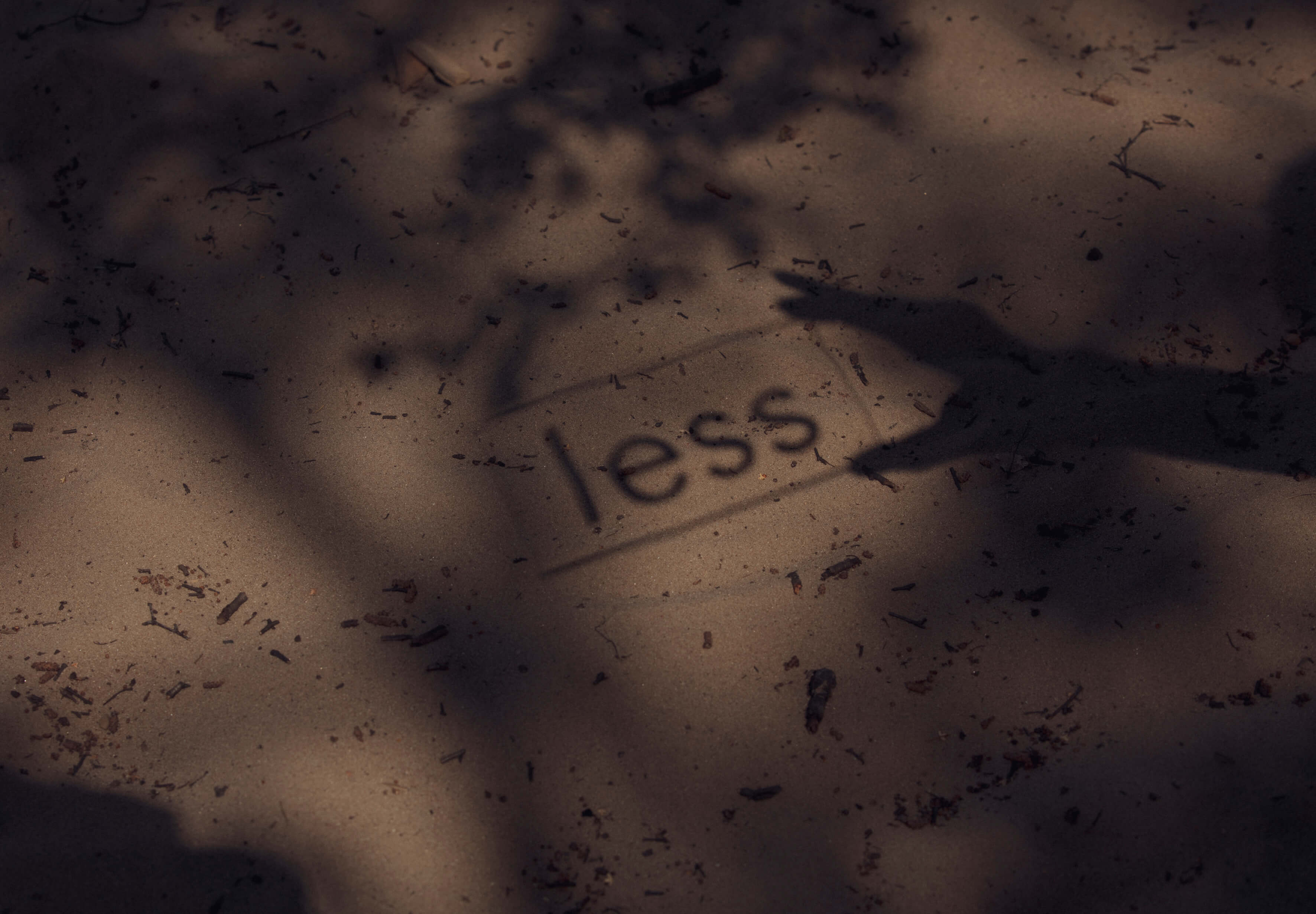
How to do it better
In order not to unnecessarily stress the skin and the organism, dermatologists recommend avoiding skincare products with SPF and instead apply sunscreen separately and only at times when one is in the sun for a longer period of time. This ensures that skin irritations are reduced to a minimum and that the sunscreen can be applied in sufficient quantity and adapted to sun intensity and skin type. The basic routine is that the skincare product is applied first and then the UV protection after 20 minutes at the earliest. Any makeup is applied over the sunscreen.
As recommended by dermatologists, we at Less do not use products with integrated SPF. We also agree with the experts that sunscreen should be used as a complementary measure to the most natural and skin-friendly sun protection of all: shade. Anyone who wears a sun hat and sunglasses and avoids the intense midday sun is already taking the right steps to protect their facial skin from excessive UV radiation – all without overloading the skin with unnecessary ingredients.
In order not to unnecessarily stress the skin and the organism, dermatologists recommend avoiding skincare products with SPF and instead apply sunscreen separately and only at times when one is in the sun for a longer period of time. This ensures that skin irritations are reduced to a minimum and that the sunscreen can be applied in sufficient quantity and adapted to sun intensity and skin type. The basic routine is that the skincare product is applied first and then the UV protection after 20 minutes at the earliest. Any makeup is applied over the sunscreen.
As recommended by dermatologists, we at Less do not use products with integrated SPF. We also agree with the experts that sunscreen should be used as a complementary measure to the most natural and skin-friendly sun protection of all: shade. Anyone who wears a sun hat and sunglasses and avoids the intense midday sun is already taking the right steps to protect their facial skin from excessive UV radiation – all without overloading the skin with unnecessary ingredients.
